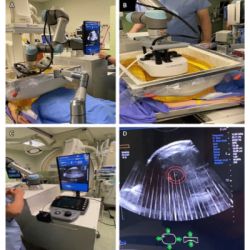In a recent report, published in the journal Cancer, researchers have documented a significant decline in cancer screenings and subsequent diagnoses in the United States during the initial stages of the Covid-19 pandemic. There were notable decreases in the number of newly diagnosed cases across six types of cancer including colorectal, female breast, lung, pancreas, prostate, and thyroid.
The declines can be attributed to the fact that many individuals chose to cancel or postpone cancer screenings while adhering to stay-at-home measures during the pandemic. This unfortunately led to delayed diagnoses and care.
Although screening use has increased, it has not reached pre-pandemic expected levels. The suspension of cancer-related procedures has resulted in a backlog of healthcare services, leading to increased wait times for cancer surgery and other critical treatments.
The researchers analysed data on new cancer diagnoses reported between 2015 and 2020, sourced from the North American Association of Central Cancer Registries. They developed a statistical model to calculate the expected number of cancer diagnoses for those years. In addition to showing there was a reduced volume of pathology reports in early 2020, it was discovered that there were fewer newly diagnosed cancer cases than anticipated. The most significant decline occurring in April of that year.
The researchers also identified variations in newly diagnosed cancers based on age. There were fewer diagnoses than expected among individuals aged 40 and older for colorectal, breast, and prostate cancer cases.
In summary, the data indicates that at the outset of the COVID-19 pandemic in the United States, many people with cancer were not diagnosed.
A sharp decrease in reported cancer cases began in March 2020, with the most significant decline occurring in April of that year. The declines correlate with reductions in pathology reports. Additionally, there was a slight improvement in May, and subsequently, for most cancer types, the deficit decreased in June.
The declines are not attributable to operational delays in cancer reporting but, instead, to missed opportunities for early detection during screening preventive care visits, diagnostic procedures, and other health care visits.
Source: CNN
Image Credit: iStock


























